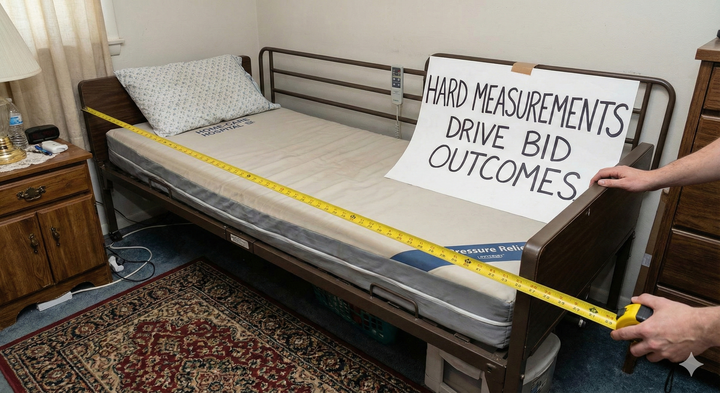Horizon cutting-room links: Wednesday, 16 July 2025

"Facing painful cuts, the V.A. reported dubious savings to DOGE," New York Times
In a recent report, the Department of Veterans Affairs (VA) revealed that its cost-saving measures, aimed at addressing budgetary constraints, may not yield the promised financial benefits. As VA grapples with painful cuts, skepticism surrounds its projected savings, raising concerns about the impact on veteran services and care.
- VA announced budget cuts that could significantly affect veteran services, prompting widespread concern among advocacy groups.
- Despite showcasing projected savings, internal assessments suggest that the actual financial benefits may be overstated, leading to questions about fiscal responsibility.
- Experts warn that the cuts could lead to a decline in the quality of care for veterans, highlighting the need for careful evaluation of the VA’s financial strategies.
"State Department cuts hit cyber diplomats doing international engagements," Government Executive
The recent downsizing at the State Department has significantly impacted its cyber diplomacy bureau, resulting in the loss of key personnel essential for international digital policy engagements. As the agency aims to streamline operations amidst evolving foreign policy priorities, these cuts could hinder the United States' ability to effectively address cybersecurity challenges globally. The situation raises concerns about the future of US diplomacy in the digital age, particularly in relation to collaboration with international partners.
- The Bureau of Cyberspace and Digital Policy experienced substantial staff reductions, losing nearly half of its team involved in bilateral engagements and communications strategy.
- These cuts come after a reorganization that aimed to enhance the bureau's role in international digital policy, but now threatens its effectiveness in addressing key technology issues.
- Experts express concern that the loss of specialized personnel could weaken U.S. cybersecurity efforts and hinder collaborative international projects, undermining the country's standing in global technology diplomacy.
"Agencies plan to decommission hundreds of .gov websites following GSA review," Federal News Network
Various federal agencies are set to decommission hundreds of .gov websites following a comprehensive review by GSA. This initiative aims to eliminate redundancy, improve user experience, and focus resources on more relevant digital platforms. As agencies assess their web footprint, the upcoming changes may lead to better navigation of federal services and information for citizens.
- 332 websites targeted for elimination: Among the 7,200 total websites reviewed, agencies have identified 332 sites for decommissioning, focusing on outdated or redundant platforms.
- Significant cuts from specific agencies: SBA plans to eliminate over half of its websites, while the Department of Health and Human Services targets 7 percent, including the cessation of the vaccines.cdc.gov website.
- Implications of the review: GSA's initiative reflects a broader push to modernize federal websites, ensuring that digital services are both efficient and user-friendly, aligning with the directives from OMB.
"What’s the key to better defense contracting? Measure what works." Defense News
As the US grapples with increased competition and the potential loss of its technological edge, government and industry leaders are calling for renewed focus on how success is defined and evaluated. This article highlights the pressing need for better metrics and incentives to foster innovation, particularly among small businesses and nontraditional contractors, while addressing the challenges faced by the defense sector in maintaining its competitive advantage.
- Measuring innovation outcomes is lacking: The federal government’s current approach to agile acquisition lacks effective metrics, leading to anecdotal evidence of success rather than data-driven assessments of innovation benefits.
- Incentives drive innovation: To attract impactful vendors, the government must create meaningful profit incentives; without them, innovators are likely to focus on the commercial sector over government contracts.
- Small businesses and innovation: While small businesses play a role in government contracting through initiatives like SBIRs, much of their work is in noninnovative fields, highlighting the need for agencies to refine their contracting strategies to enhance small business contributions to innovation.
"Dulles International Airport master plan slated for final approval," Washington Business Journal
The Metropolitan Washington Airports Authority is poised to approve a comprehensive twenty-year master plan aimed at significantly expanding Dulles International Airport to accommodate an anticipated increase in passenger volume. This ambitious plan includes the addition of a fifth runway and enhancement of passenger facilities, which promises to modernize the airport's infrastructure and improve connectivity for travelers.
- The master plan aims to increase airport capacity to 45 million passengers annually, a 66 percent increase from the 27 million served last year.
- Key components of the plan include adding a fifth runway and constructing 24 additional gates, which are essential for meeting future demand.
- Improvements to the Aerotrain system and concourses are designed to enhance passenger experience and connectivity, addressing current inefficiencies in transportation between terminal areas.




Comments ()